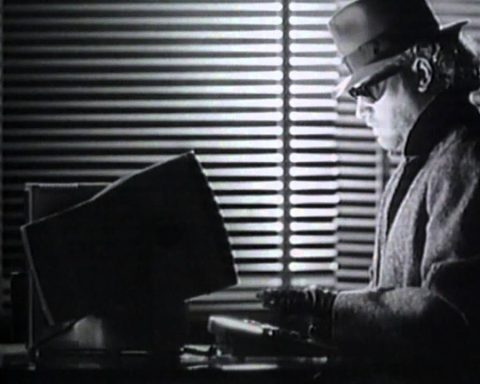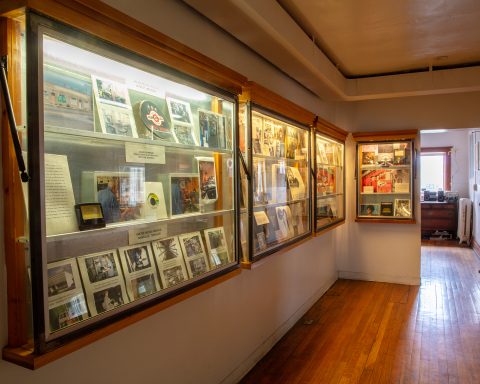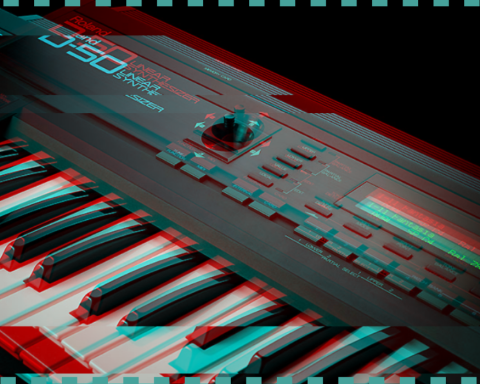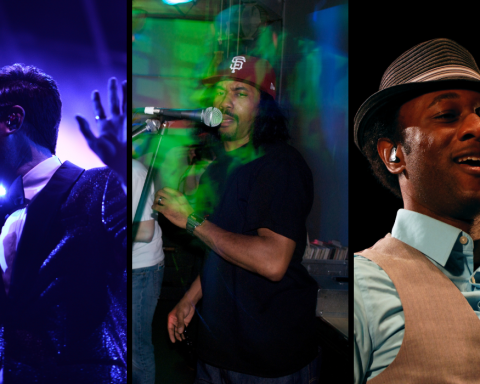Rob Hyman’s career has been a journey with a few constants: great timing, great collaborators, and great songs. Those songs and their sounds created a legacy that endures. Speaking from his home in Philadelphia, Hyman reflects on the fortuitous way things have come together in his musical life. “As you know, on any project, you need the planets to align.”
From Philly with Heart
After clawing their way out of the East Coast club trenches, Hyman’s band The Hooters came of age with its major-label debut, Nervous Night. The collection produced effervescent ’80s favorites like “And We Danced” and “Day by Day.” Their sound was tight and powerful, punctuated by the unexpected presence of melodica, the instrument that gave The Hooters its name.
Along the way, there were a host of highlights. The Hooters kicked off the Philadelphia part of the Live Aid concert. They met Paul McCartney while appearing on Top of the Pops. The group even took part in a performance of The Wall at the Berlin Wall at Roger Waters’ request.
Creating a Classic
Still, it’s Hyman’s earlier collaboration with another artist that yielded his most famous tune. Along with producer Rick Chertoff and his Hooters “partner in crime” Eric Bazilian, Hyman worked on Cyndi Lauper’s debut album, She’s So Unusual. He and Bazilian felt the record was nearly done when Chertoff informed the crew they needed one more song.
The moment was a turning point for Hyman. “Talk about famous last words,” he laughs. “There are pivotal moments in all our lives, and that was one for me. We’d spent months in our frigid warehouse working up demos with a space heater. We had ‘All Through the Night,’ ‘Money Changes Everything,’ and ‘Girls Just Want to Have Fun’—all this great stuff. But Rick thought we could use another.”
"That instrument was magical for me. I love hands-on synths and that’s what the JUNO was."
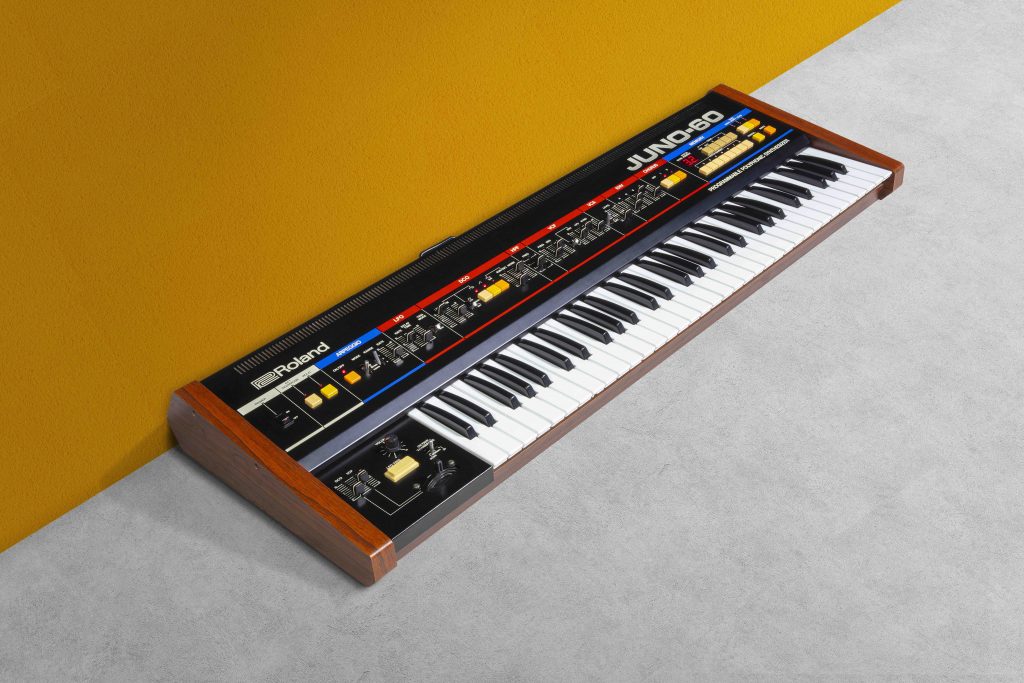
Timeless Instrument—Timeless Track
Lauper brought the title from a Malcolm McDowell film and the pair started writing. Before long, “Time after Time” came to life. The Roland JUNO-60 was there at the perfect moment. “It started with that pad,” Hyman recalls. “Number 61 on the JUNO. I’ve never forgotten that—I owe my life to that pad.”
The recording went quickly as well. “We didn’t even do a demo, went right to 24-track multitrack. I always tell people the demo is the record,” Hyman says. “It was something fresh and new, and the recording was really fast. If Cyndi’s vocal wasn’t the first take, it was close.”
In keeping with the collaborative spirit of the time, Hyman’s quick to praise his teammates. “I have to credit Rick for suggesting one more song. Eric played beautiful guitar parts. Our engineer, Bill Wittman, got great sounds.”
The Final Overdub
But there was one crucial piece that fell into place late. “Sonically, the last thing that happened on the record was the bassline, which was another JUNO.” The sparseness of the track indicated what to do. “There was no bass on the verses. It was just a low-end pad and drones.” Hyman drew on his lifelong love of Jamaican sounds to find the right groove. “The bass enters on the chorus and it’s just a straight-up reggae line. That was a pivotal moment.”
In fact, the JUNO-60 is all over She’s So Unusual. “That instrument was magical for me,” Hyman recalls. “I love hands-on synths and that’s what the JUNO was. When Cyndi came along. I had other things in there, but that was my go-to axe.”
Island Vibes and a Percussive Pad
There’s another iconic song on the album with a JUNO twist. The steel-drum-inspired solo on the anthemic “Girls Just Want to Have Fun” uses the synth’s “Percussive Pad” patch—with some magic thrown in.
"The bass enters on the chorus and it’s just a straight-up reggae line. That was a pivotal moment."
“We landed on this percussion thing and it was a calypso, reggaeish vibe. Honestly, I believe it was one take,” the keyboardist remembers. It clicked immediately with Lauper. “She said, ‘Yeah, that!” and was dancing around.” The moment inspired some improvisation. “Cyndi was channeling the sound, and I started turning on the arpeggiator randomly. At the very end—which is my favorite part of the solo—it goes ‘whi-whi-whi.’ That’s the pitch bender controlling the filter.”
The JUNO-60 allowed for these kinds of freewheeling moments. “I was in my sweet spot, rhythmically,” Hyman says of the spontaneous solo. “There was so much real-time performance, which is what I loved about the JUNO. You could just manipulate it.
Childhood Inspiration
The reggae-influenced sounds of She’s So Unusual and The Hooters early oeuvre are close to Hyman’s heart. “I’m a big reggae-ska fan. I went to Jamaica on a family vacation when I was 13 and all that music never left my brain,” he explains. “In the early version of The Hooters that’s all we did. Cyndi was also into that early ’80s punky ska thing—two-tone stuff like the Specials, Madness, and the Beat.”
"I went to Jamaica on a family vacation when I was 13 and all that music never left my brain."
Exploring Tradition
The immediate success of She’s So Unusual helped The Hooters earn their record deal with Columbia. As their career progressed, the group’s sound evolved, incorporating folk and other influences. One Way Home and Zig Zag tackled more serious topics and traditional instrumentation. New sounds included penny whistle and accordion, alongside their trademark melodica. Hyman sees it all as a natural progression.
“I always liked the buzzy, reedy patches on instruments like the JUNO,” he shares. “We started touring in the States, places like New Orleans, Biloxi, and Lafayette. I was picking up Cajun and zydeco cassettes down South and thought, ‘Let’s try the real thing.’”
In the mid-’90s, The Hooters camp captured lightning in a bottle again. At that time, Hyman, Bazilian, and Chertoff collaborated with another artist whose career exploded. “We did Joan Osborne’s Relish, which was another big record. Eric wrote ‘One of Us’ for that, so he scored. It was wonderful.”
Devoted Fans Overseas
The Hooters tour Europe regularly where they maintain a devoted following in Germany, Norway, and Sweden. Were it not for the pandemic, they’d have celebrated the group’s 40th anniversary with extensive dates. Even with those shows postponed, Hyman remains upbeat about the band. “We’re a club band at heart who get on stage and play. Sometimes it’s just a bigger ‘club.'”
That raw live spirit is key to the group’s longevity and its bond with its fans. “It’s rock and roll, and that’s how we function,” Hyman adds. “Always has been, always will be.”
"We’re a club band at heart who get on stage and play. Sometimes it’s just a bigger 'club.'"
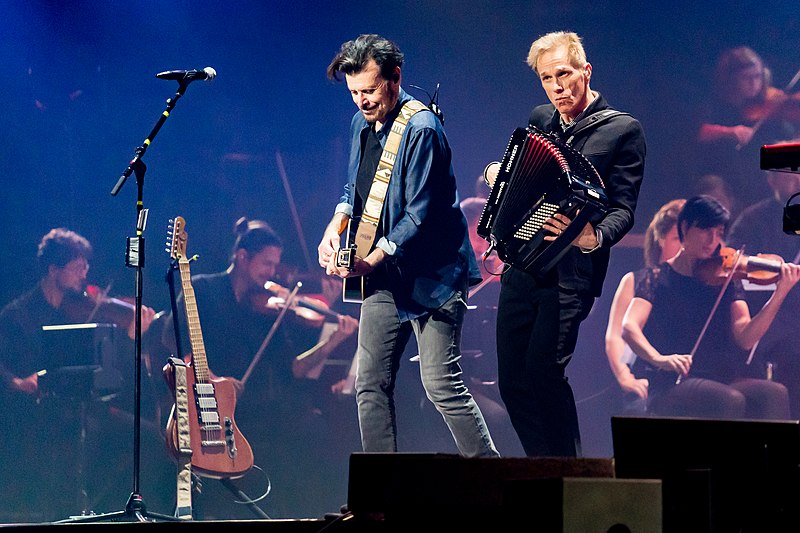
Central to Hyman’s journey is a tight-knit group of friends who’ve experienced extraordinary success together. “Everyone’s always supporting each other,” he says. “That’s the story of the band and the people we’ve met along the way.”


